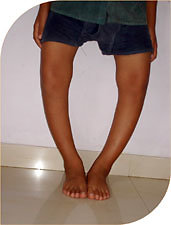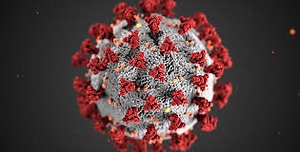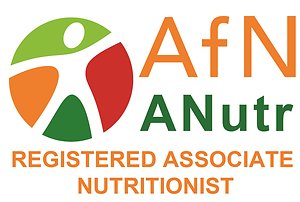
Affect of vitamin D deficiency on physical and mental health
A long, grey and wet winter has everyone reaching for T-shirts and flip flops at the first sign of a bit of sun.
It is almost like we instinctively know that the suns rays bring a lot more to our minds and body than just warmth.
The sun's rays penetrating our skin not only gives us warmth, but triggers the production of the hormone Vitamin D (commonly known as a vitamin).
Vitamin D deficiency is a huge public health problem worldwide , in people of all ages.
Adequate amounts of Vitamin D ensures the absorption of calcium, giving us strong bones and teeth and helping us to avoid bone demineralisation, which could lead to rickets in children and osteoporosis in adults.
Vitamin D receptors have been found in a variety of cells throughout the body and brain, indicating a far bigger role in maintaining health than we first suspected. It has also been found to be involved in cognitive development and brain function, so deficiencies are associated with mental health issues, like depression, scitzophrenia and Autistic spectrum disorders (ASD).
A humans main source of vitamin D comes from skin exposure to the suns UVB radiation. Its production starts in the subcutaneous fat below the skin, where the suns rays activate 7-dehydrocholesterol (7-DHC) and converts it to the precursor 25-hydroxyvitamin D {25-(OH)D}. Small amounts of vitamin D can also be absorbed through the digestive system from the few food sources that are available, such as mushrooms, eggs, fatty fish, or fortified dairy products and cereal, but not enough is available in food to supply the bodys daily needs.
Studies have found a link between persistently low levels of vitamin D in people living in colder climates with limited exposure to sunlight and a variety of cognitive and physical disorders . Additionally evidence shows a higher level of theses disorders are associated with vitamin D deficiency in darker skinned people who live in theses climates .
Early symptoms such as muscle or bone pain if left untreated can lead to many conditions and diseases.
Click on the links below to view scientific studies on the disorders and diseases listed.
Depression/mental health disorders: 2*
Hypertension: 3*
Osteoporosis: 4*
Diabetes: 5*
Reumatoid Arthritis: 6*
Cardiovascular Disease: 7*
Multiple Sclerosis (MS): 8*

Those at high risk of Vitamin D deficiency
People living in climates with reduced sunlight hours are at a greater risk of vitamin D deficiency than those living closer to the equator.
The most at risk are the very young, the elderly and those who cover up their skin for religious or cultural reasons.
The very young are at risk as they spend most of their time indoors and when outdoors they are slathered in suncream.
Vitamin D deficiency can start as early as in the womb with the mother being deficient. When the child starts walking, if the deficiency isn't picked up they can develop rickets, a skeletal disorder where the bones become soft and weak, bending or bowing as the child gets heavier.
The elderly are at risk for multiple reasons. Firstly as they age their bodies becomes less efficient at converting 7-DHC in the skin into the vitamin D precursor 25-OH D. This age group also suffers from other age related diseases and co-morbidities that might affect the function of two important organs instrumental in vitamin D production, the liver and kidneys. Additionally the majority of their time is spent indoors due to mobility issues or illness and this reduces sun exposure. If suffering from aches and pains in the muscles or bones or a low mood it is advisable that this age group visit a doctor and request blood tests to check vitamin D status. If needed vitamin D supplements should be prescribed by their doctor.
People who cover up for religious or cultural reasons are also at significant risk of deficiency, as yet again the lack of skin exposure to the sun reduces cutaneous synthesis of vitamin D. This is primarily true for people living in temperate climates but also exists in countries close to the equator.

Can Sunscreen affect Vitamin D production?
Due to the heightened awareness of sun exposure causing wrinkles and more importantly non melanoma skin cancers, sunscreen use has risen significantly. Unfortunately heavy sunscreen use has been found to contribute to vitamin D deficiency, by blocking the ultraviolet rays required to penetrate skin and produce the pre vitamin D. For instance applying a sunscreen with a sun protector factor (SPF) of 8 reduces vitamin D production by 95% 9.
Parents who have been advised to apply a factor 30 or above to their children's skin could be storing up real health problems for their children in the future. Problems can manifest as painful muscles and bones, and could lead to rickets in severe cases, as well as mental health issues in later life such as depression.
On the subject of sunscreen, people with dark skin have a built in sunscreen called melanin. The darker the skin the more melanin it contains. Melanin is a very efficient sunscreen with a sun factor protection (SPF) of 15 in the darkest skins. This can reduce vitamin D production in the skin by up to 99%. This is a suspected contributory factor in the high incidence of mental health issues in the black community, but more research needs to be done here.

Obesity and vitamin D production
Another unexpected group, prone to vitamin D deficiency is the obese. The co-morbidities associated with this group such as insulin resistance, and cardiovascular disease are also inversely associated with insufficient vitamin D .
It is thought that the extra subcutaneous fat layer under the skin reduces the penetration of the suns UVB rays and the ability to activate and mobilise the pre vitamin D into the blood stream 10. This leaves obese people with aches and pains in their muscles and bones, as well as severe tiredness that they frequently attribute to being over weight, when in fact part of the problem could be their reduced vitamin D status.
If you suspect you, or your loved ones might be vitamin D deficient, or you are suffering from severe tiredness, aching muscles or painful bones, ask your doctor for blood tests to check vitamin D status. If found to be deficient your doctor can prescribe the right dosage of vitamin D supplements specific to your needs, depending on the severity of the deficiency.

Strengthening The Immune System Can Help Recovery From Viruses
Christmas 2019 gave no clues as to what was about to explode into our lives in 2020, changing it forever! Few have been unaffected by Covid -19 and many loved ones have been lost. But while the world stops to breath, we have all been given a window of opportunity to reflect, adapt and shine a light on our health and lifestyle habits!
With the closure of most fast food chains, and restaurants, cooking from scratch, at home, is becoming the norm. This is the ideal opportunity to learn how to maximise nutrient intake and strengthen the immune systems that works so hard to protect us.
Our immune systems are responsible for protecting the body from invaders, or pathogens that enter the body via the nose, mouth and lungs such as unfriendly bacteria, viruses and mould. Like the emergency services it is made up of different departments, or cells, each of which have a specific job to do, but work synergistically to eliminate invaders. The bacteria in the gut (microbiota) helps to educate the immune system in how to react to pathogens as early as inside the womb.
A vaginal birth versus a cesarean, populates the gut bacteria further and antibodies from the mother protects the baby for the first 6 months. By then, exposure to an increasing variety of dirt and air borne dust, food additives and pollen has hopefully strengthened the immune system further, so it can handle these irritants easily. If it doesn't then it would create an inflammatory response whenever a new food is eaten or, travelling abroad exposes you to new tree pollen. Establishing diverse gut flora as early as possible with exposure to many microorganisms, fungi and bacteria, teaches the cells that not everything it is exposed to is harmful, so it doesn't need to overreact.
There are 2 main groups of bacteria in the gut, good and bad and each group contains different strains. When we regularly eat lots of fresh healthy colourful foods, full of vitamins, minerals and fibre, the good bacteria grow in number, releasing chemicals that talk to and strengthens the immune system allowing it to balance tolerance with reaction to pathogens.
On the other hand, a diet based around fast food, cakes and sweet drinks, reduces signalling to the helpful bacteria, increasing cravings for those foods. This results in a weak immune system that like an emergency service that is underfunded, doesn't have enough resources to fight the baddies, leaving the host open to inflammation, infection and disease. A strong, robust immune system gives the host the resources to fight infection and disease and increases the chance of recovery.



